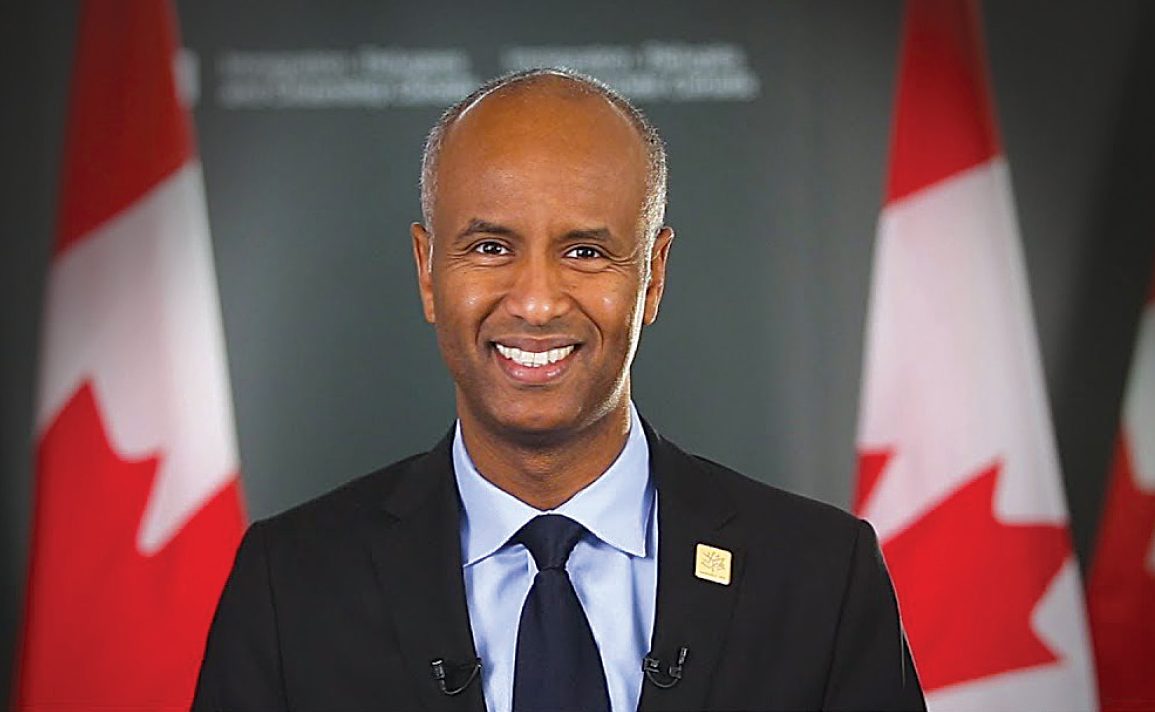Ahmed Hussen – “I’m happy to say we signed a youth mobility agreement with Portugal”
Ahmed Hussen was 16 years old when he arrived in Canada as a Somali refugee. He had nothing of his own but a change of clothes. Hussen himself went through a process of immigration.

Later on, he got a job, studied Law, got involved with his community and, for the last years, he has been working as Minster of Immigration, Refugees and Citizenship. With the election coming closer each day, we talked about his background, platform and his views on Portuguese community.
Milénio Stadium: How did you get involved in politics and how did you end up running for the Liberal Party? Was this something that you planned?
Ahmed Hussen: No, it wasn’t. There are two types of politics: those with a political party, in a formal rule, and then there is community leadership people, who do other things in their life but contribute to the community, provide leadership and collaborate with their fellow citizens to improve their community. And I did that for many years before I became a formal politician. I worked a lot on community development, community organizing, making sure that people had a voice. There is a lot of that happens on a daily basis and, in many ways, those voices on that leadership in the community is sometimes equally – if not more important – than even the formal political processes, because they really help to organize people to have a voice and to bring up the issues that matter. So, I did that for seven years, I always have been involved in the community and advocating on a number of issues. I did work for five years for Dalton McGuinty, so I got a chance to work behind the scenes as a political adviser. That gave me again another perspective of how the system works, how parliament works, how the entire government works. I had the opportunity to join Mr. McGinty as a special adviser on intergovernmental affairs and I did that for a number of years, and then I went to law school. So, in some ways, I was always around politics and around community development. But I never thought that I would take that final step. I became a lawyer and I was happy doing that for a number of years, until I really got tired of the cuts to the community services that help and continue to help a lot of people in Canada. I used to complain a lot about that, and my friends said “why don’t you do something about that”. I said “well, I can’t do anything”. Just one person said “well, you’re complaining about these issues too much, why don’t you step forward, run for office and then you can do something”. I dismissed it and I said no. I was happy with my legal career. I wanted to just enjoy what I was doing, which was representing young people in the criminal justice system, but also doing a lot of immigration cases. So, I really dismissed those suggestions for a number of times. Then one of my friends showed me data which was really convincing and said what could actually be done, the impact I could have. It was at that point that I started seriously considering it. Then I ran for the position of member of parliament in 2015.
MS: What is on your platform for this election?
AH: Well, two things. One is to waive the fees for citizenship for permanent residents who have fulfilled all the other requirements for citizenship and who are facing barriers towards citizenship because of the fees. We are hearing that the fees have become an issue and have been an issue for a long time. There is a $650 citizenship fee for an adult and $100 for a minor. For a family of four that’s $1500. It is preventing people from becoming Canadian citizens, so we are proposing that a re-elected liberal government will waive citizenship fees for permanent residence. It’s a huge step and it encourages them to finally take that step to becoming Canadian citizens. The second thing that we are promising to do, which is kind of a continuation of a lot of things that we had done, is the introduction of a municipal nominee program. What this means is a local municipality or business council, or local chamber of commerce, or combination of all of them, where labor kinds can come together and nominate skilled workers for the local economy. So, if a small town in rural Ontario needs ten truck drivers and they are desperately short, they can use this program to bring them in. The relatively older Atlantic immigration pilot program we have introduced, it has been very successful. So the other promise we’ve made is to make that program permanent.
MS: What are other main concerns you see in this area?
AH: In proportion to the immigration number, we need to make sure that we continue the innovation within the settlement sector, integration of settlement of newcomers. We had introduced a number of innovative initiatives within the settlements, find new ways to provide services for different kinds of immigrants. We will continue that, of course. We will certainly continue working on the Global Scale Strategy. That program has resulted in thousands and thousands of highly skilled people coming to Canada and creating jobs for Canadians.
MS: What is your position regarding the undocumented workers issue?
AH: This is not a simple issue. As you know, many governments before us tried to do something about it but failed. We kept our promise, we heard the feedback from the community. It will take the time to get it right, and I believe we are getting it right. A few months ago we announced the beginning of an initiative to regularize a number of people within the construction industry in the GTA, a number of undocumented folks who were in the construction industry and whose skills and talent is needed now. We announced that initiative and we also made it clear that it also included family members. The selection and referrals of those individuals will be made and identified by a third party, the Canadian Labor Congress, to give confidence to the process, to give confidence to those folks tocome forward and to give confidence to the industry as well. We announced it, it’s public, and I’m proud of the fact that we were able to get it done before the election.
MS: How do you see the Portuguese community in the immigration scenario?
AH: As a liberal, we’ve put in place a number of things that have, of course, helped a lot of communities. But specific to the Portuguese Canadian community, I’m happy to say we signed a youth mobility agreement with Portugal that will allow up to 2000 young Portuguese to come work, study and travel in Canada, and to allow an equal number of Canadians to do the same in Portugal. That’s a huge step. And we signed that agreement when prime minister António Costa came on his official visit to Canada. That agreement will contribute to the strengthening of the relationship, but also to the strengthening of the people to people ties between Canada and Portugal. The undocumented worker initiative, a big chunk of those folks we will have inevitably be of Portuguese background. There’s a lot that we’re working together on. On a personal level, since getting elected I make sure that I attend as many events as possible within the Portuguese Canadian community. I’m particularly fascinated by the folklore, it’s amazing!








Redes Sociais - Comentários